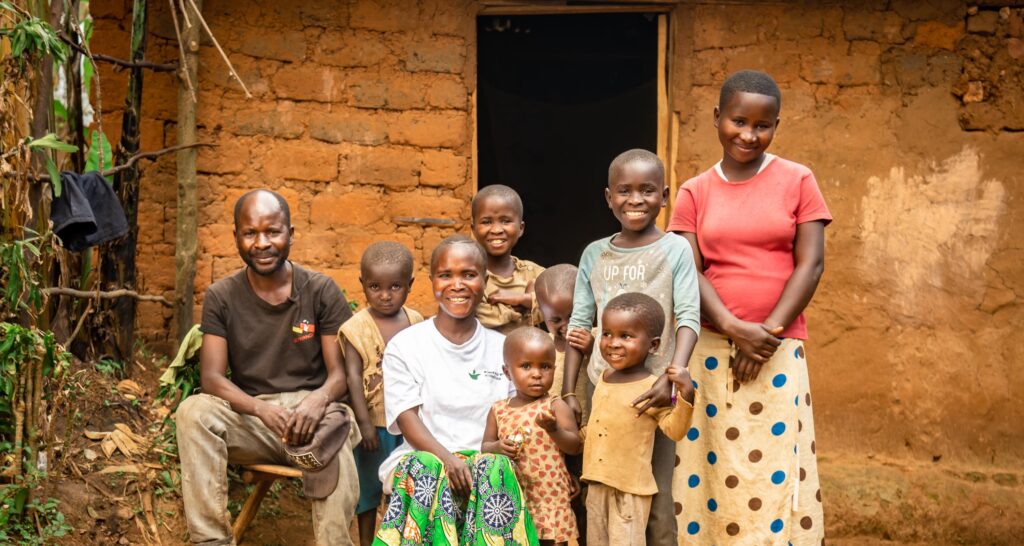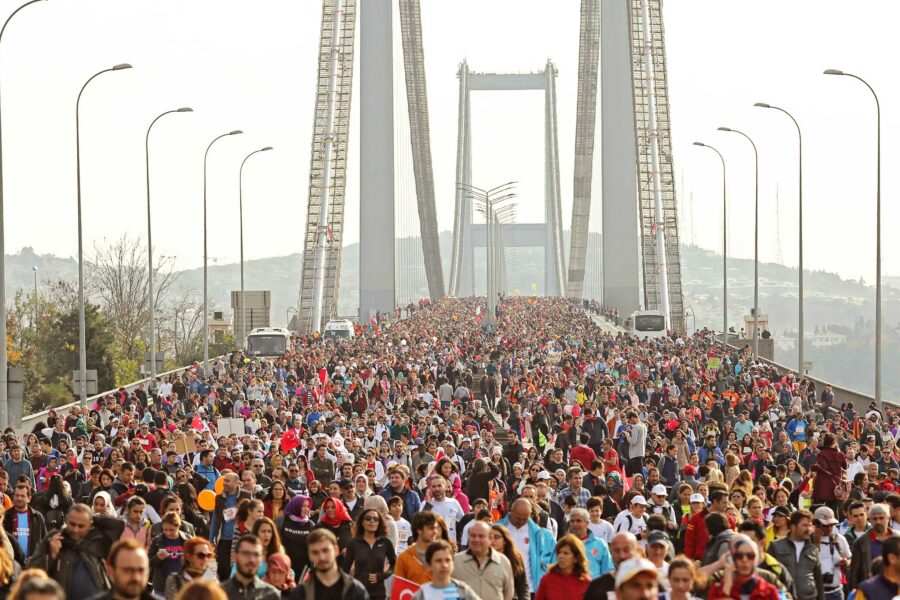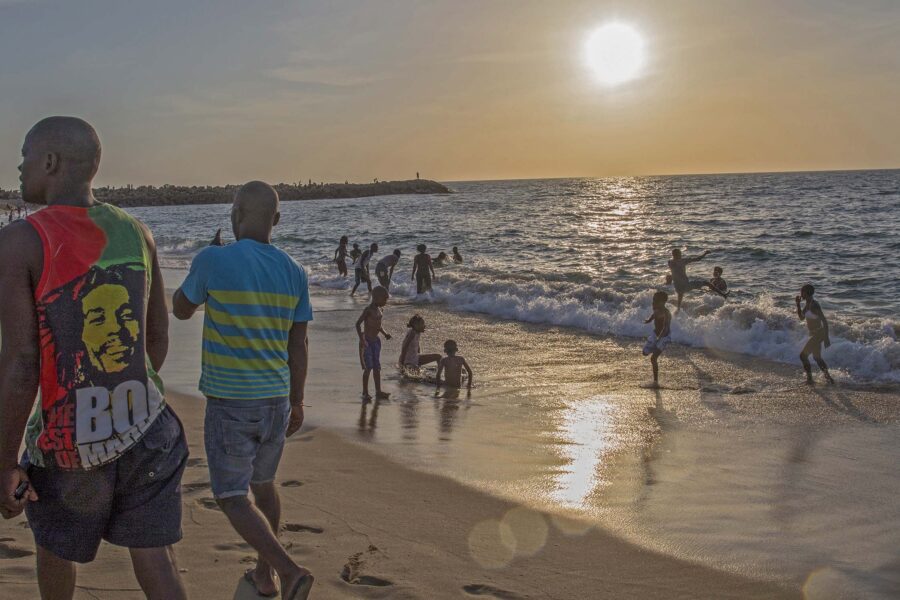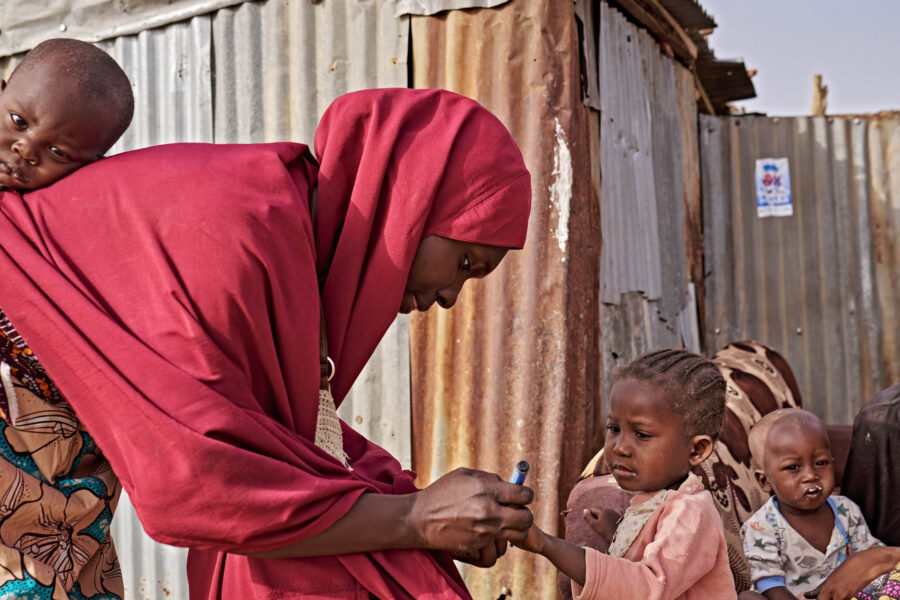Securing women’s property rights
With just seven years until the 2030 deadline, millions of women across the globe continue to be denied the right to own and control land and property, despite the clear benefits it brings to them, their families and communities. To end this economic abuse, we urgently need more women in positions of leadership
Gender — Global

Last year marked a critical milestone. 2022 saw the midpoint of the UN’s 15-year 2030 Agenda, which, at its inception, was celebrated for recognising the centrality of gender equality to the entire Sustainable Development Goals (SDGs): that achieving gender equality (SDG 5) would be contingent on progress made across the other 16 goals.
But it’s increasingly clear that any gains made so far have been wildly insufficient. Back in 2020, when Women for Women International launched Unheard. Unseen. An Agenda for Action, we estimated that over 200 million women were unable to fulfill their potential as a result of extreme poverty, violence, and multiple forms of gender discrimination, often rooted in patriarchal, cultural, and traditional gender norms. Since then, we’ve seen rising insecurity compounded by the impacts of climate change, COVID-19, and both the direct and ripple effects of Russia’s invasion of Ukraine. Notably, in 2022, the World Bank officially declared its longstanding goal of ending extreme poverty by 2030 unlikely. And, based on recent data, the Gates Foundation and Equal Measures 2030 estimated that the world won’t reach gender equality until at least 2108.
This isn’t simply a case of “missing a deadline.” It’s women and girls, particularly those caught at the intersection of conflict and feminized poverty, who will face the disastrous consequences of the world failing to meet the ambitious goals it set out in 2015. But we also know that, often, it is women who are best placed to drive forward the responses and solutions to many of the challenges that communities affected by conflict face. When women are given the space to lead – to participate in the decisions that impact their lives and advocate for their own self-defined priorities – then tangible change is possible.
We’ve seen this first hand through our work in the Democratic Republic of the Congo (DRC) where, in the face of often widespread resistance, the women that we work with have been pushing back against a system that restricts them. It proves that even in the face of challenges such as poverty and food insecurity, when women exercise their right to own land and property, it can make a big different not just for them, but their families and communities too.
Access to land and property are critical components to improve marginalized women’s ability to be socially and economically successful. According to the Food and Agriculture Organization of the UN, women own only 25% of land in the DRC, despite the crucial role they play in agriculture, rural development, and food security. They are consistently discriminated against, both in accessing land and controlling it. Widows are especially vulnerable and, in some cases, may be left destitute when their husband dies.
This inequality is embedded in institutional practices. In the most part, there are national legal and policy protections for women, but women are often unaware of them, and community power holders do not promote women’s rights. Instead, they defer to patriarchal ‘customary’ norms. This is the case with land ownership, which is transferred from father to first-born sons according to customary practices, while legally women have the right to inherit the land over their sons. When we asked the husband of one of the participants of our Stronger Women, Stronger Nations Program why he wouldn’t share his land with his wife, even though she was the one doing the farming activity, he explained that it had not been done since his ancestors started owning the land. And he didn’t want to be the first one to start.
Having access to the land you cultivate reduces economic violence, but when women are intentionally held back from accessing certain financial resources, or someone who holds power over financial resources withholds them intentionally, that is a form of economic violence and abuse. It’s a way to control women, a way to manipulate or abuse them, a way to shut them out of economic and social life.
But we have seen recently that this can shift when we take a whole-of-community approach, led by women. In Bukavu, in the DRC’s South Kivu province, we trained women through our grassroots leadership and advocacy Change Agent Program. These women have gone on to sensitize men and engage them as allies – including influential village chiefs and men in the community – on what constitutes economic violence, the importance of land rights to women’s power, and how this connects to broader gender equality. Change agents also conducted couples’ and community dialogues to create a collective space for discussion and sharing the documented linkages between women owning land and their households and families overall being healthier, more successful, and better educated. The message was simple: women’s land ownership can set off a cascading chain of effects that are beneficial for everyone. But sharing it wasn’t. There was significant resistance and backlash from men. Initially, first-born sons resented their mothers’ newfound land rights over theirs. Community members accused the change agents of spreading harmful messages that were against their culture, and some change agents even faced harassment. Yet they stood up to people who actively told them they were wrong and suggested the idea of a “new normal.”
One particular change agent – Angelique – used to work on other people’s farms earning 2,000 Congolese Francs, equivalent to USD 1, a day. One day, her husband broke his leg on a construction site where he was working and, overnight, she became the sole breadwinner for her family. They have nine children. Angelique and her husband participated in the couples’ dialogues organized by change agents. After the session, the discussion continued at home and Angelique’s husband started to change his mentality about women’s land rights, eventually giving Angelique a plot of land. Now, she is a role model to other women in the community. She is making a steady income, paying school fees for her children, and providing employment opportunities for other women. She is also expanding her sensitization and advocacy to the entire community, fighting gender-based violence and promoting women’s access to land, and paving the way for other women to claim their rights. Angelique told us: “when I received my title, I was so happy… I could jump.”
Since the change agents started their advocacy in Bukavu, 20 men who participated in the couples’ dialogues have registered their wives for land titles. Change agents have successfully overseen 145 land titles provided to women, while another 300 are pending processing. And the chief has lowered the price of land titles and personally delivered registration documents as a result of change agent advocacy, showing clear buy-in from community leaders.
So, as we assess progress made on the SDGs, it is worth remembering that investing in women’s leadership, voice, and participation works. It is only by letting women lead the way, as Angelique and her sisters have done in the DRC, that we have any hope of moving the needle when it comes to both gender equality and the SDGs as a whole.





